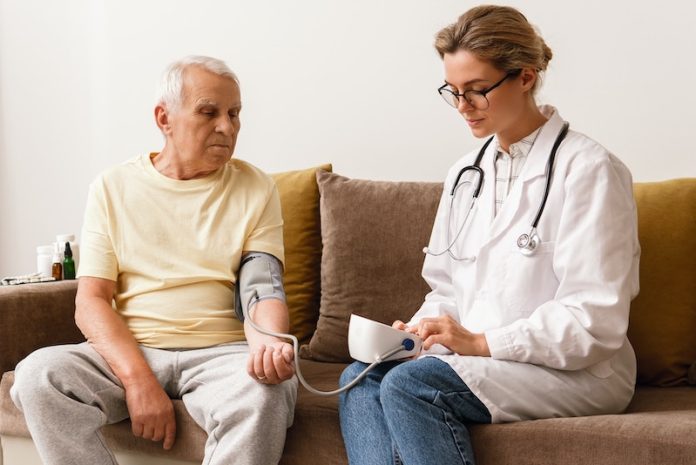
Atrial fibrillation, often referred to as AFib, is a heart condition characterized by irregular and sometimes rapid heartbeats.
This irregular rhythm can lead to the formation of blood clots in the heart, which, if not managed, can result in more severe issues such as strokes.
The Old Approach vs. The New Breakthrough
Traditionally, doctors assessed the duration of AFib to understand a patient’s condition. However, this method provided only a partial picture, similar to knowing how long a pot has been boiling but not its temperature.
In a groundbreaking development led by Dr. David Filgueiras, a cardiologist, researchers have introduced a novel way to evaluate AFib.
Previously, it was challenging to simultaneously measure the heart’s electrical signals and its pumping action.
However, with this breakthrough, they can do just that without direct contact with the heart. It’s akin to observing and listening to the heart from the outside.
The Milestone Achievement
A collaborative effort involving experts from various institutions spanning a decade led to this innovative approach. The researchers devised a method to assess both the heart’s electrical signals and pumping action non-invasively.
They conducted a study involving 83 patients who had recently exhibited AFib symptoms.
Their findings revealed instances where the heart’s electrical signals and pumping action were not synchronized, akin to a drummer outpacing a dancer. This asynchrony predominantly occurs in the early stages of AFib.
This mismatch serves as a valuable indicator, signaling the progression of AFib. Detecting this early mismatch allows doctors to provide more effective care to their patients.
The Significance of the Breakthrough
This new method can be likened to a more powerful magnifying glass for doctors. It enables earlier and clearer identification of the problem, while its non-invasive nature ensures safety and convenience for patients.
This innovation promises to revolutionize how doctors diagnose and treat AFib, resulting in improved care for countless individuals.
Dr. Filgueiras emphasized that this novel approach enables doctors to gain a more comprehensive understanding of how AFib will impact each patient.
Experts like Julián Pérez Villacastín believe that this research will pave the way for more personalized treatments for AFib patients.
In summary, this breakthrough represents a significant advancement in comprehending and addressing a prevalent heart condition, ultimately offering new hope for those affected by AFib.
If you care about heart health, please read studies revealing a simple blood test’s potential to reduce heart disease deaths and the role of a hormone in reducing inflammation and irregular heartbeats.
For further insights into heart health, please explore recent studies highlighting how magnesium can protect heart rhythm and the potential benefits of a specific coffee consumption method in preventing heart disease and stroke.
The study was published in Nature Communications.
If you care about heart disease, please read studies about a big cause of heart failure, and common blood test could advance heart failure treatment.
For more information about heart health, please see recent studies about a new way to repair human heart, and results showing drinking coffee may help reduce heart failure risk.
Follow us on Twitter for more articles about this topic.
Copyright © 2023 Knowridge Science Report. All rights reserved.



